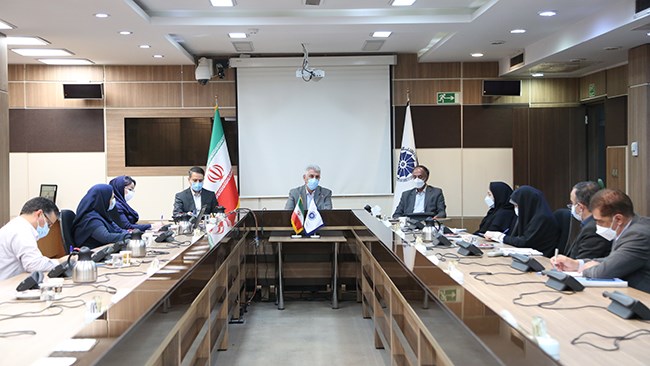Iran Chamber of Commerce deputy for international affairs says Iran's preferential trade agreement with Eurasian Economic Union (EAEU) will be capable of creating significant changes in the country's future trade status.
Iran Chamber of Commerce, Industries, Mines and Agriculture (ICCIMA) deputy for international affairs says Iran's preferential trade agreement with Eurasian Economic Union (EAEU) will be capable of creating significant changes in the country's future trade status.
Mohammad Reza Karbasi made the remarks during a meeting to review trade cooperation with EAEU member countries. He added that the preferential trade agreement with the bloc is a new experiment in making use of regional trade cooperation.
Referring to statistics released by Iran Customs Administration (IRICA), Karbasi said that Iran’s total trade with the five EAEU member countries amounted to $3.4 billion during the last Iranian calendar year (ending in March) which shows a 3% decline compared with figures from the preceding year.
He said that Iran’s imports from EAEU member states during the mentioned time stood at $2.358 million, up 1% from the same period in the preceding year, while Iran’s exports to those countries showed a 3% decline year-on-year.
Karbasi said that the statistics put Iran’s preferential exports to the bloc in the one-year period at $573 million showing a 31% growth compared to the figures from the preceding year’s corresponding period.
Iran’s preferential imports from EAEU member countries also stood at $1.487 billion last year, Karbasi said, noting that the figure showed a 22% decrease in comparison with the preceding year.

Iranian businesspersons convene in a meeting to review trade cooperation with EAEU member countries
What is Eurasian Economic Union (EAEU)?
The Eurasian Economic Union (EAEU) is an economic union of states located in central and northern Asia and Eastern Europe.
The Treaty on the Eurasian Economic Union was signed on 29 May 2014 by the leaders of Belarus, Kazakhstan and Russia, and came into force on 1 January 2015.
Treaties aiming for Armenia's and Kyrgyzstan's accession to the Eurasian Economic Union were signed on 9 October and 23 December 2014, respectively. Armenia's accession treaty came into force on 2 January 2015. Kyrgyzstan's accession treaty came into effect on 6 August 2015. It participated in the EAEU from the day of its establishment as an acceding state.
In 1994, during a speech at Moscow State University, the first President of Kazakhstan, Nursultan Nazarbayev, suggested the idea of creating a "common defense" space and regional trading bloc in order to connect to and profit from the growing economies of Europe and East Asia. The idea was quickly seen as a way to bolster trade, boost investments in the region, and serve as a counterweight to Western integration unions.
“We have created a powerful and interesting growth centre, connecting 170 million people with each other,” said Russian President Vladimir Putin on the day of the union’s establishment.
The Eurasian Economic Union has an integrated single market of nearly 200 million people and a gross domestic product (GDP) of over $4 trillion.
The EAEU introduces the free movement of goods, capital, services and people and provides for common policies in the macroeconomic sphere, transport, industry and agriculture, energy, foreign trade and investment, customs, technical regulation, competition and antitrust regulation.
It also foresees the creation of a single currency and greater integration in the future.